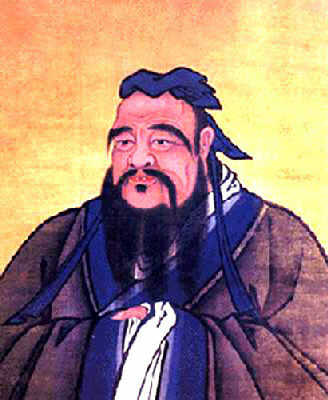Tenmo Kaikai So-ni-shite Morasazu
(=Heaven’s vengeance is slow but sure./Justice has long arms./
The mills of God grind slowly, but exceeding fine.)
(Laozi: https://en.wikipedia.org/wiki/Laozi)
This Chinese proverb by Laozi was adopted by the Japanese in Edo Period* (1603 – 1868). It took root in Japanese society, where the philosophy called “Poetic Justice (https://en.wikipedia.org/wiki/Poetic_justice)” has been highly valued.
Humans are weak. They want to be recognized when they do something great, especially something very ethical. So, this proverb brings you peace by assuring that God knows when you did something right even though no other humans don’t notice it. “God knows.” – This is a key element of this proverb. Simply the Japanese love this philosophy so much that TV programs, especially most “Samurai Dramas,” which follow through this philosophy always last longest in TV history in Japan.
Now this philosophy goes even further in Buddhism, which was introduced to Japan in the 6th century, even before the proverb came to Japan. There is an “Upgraded” Japanese virtue called “Intoku (Stealthy Benefaction)” in Japan. This is even more highly valued than just doing something good called “Yotoku.” Ying and Yang** – “Intoku” comes from “Ying” while “Yotoku” from “Yang.” “Yotoku” is to be revealed to the public sooner or later. Those who did “Yotoku” are to be recognized and praised by all. On the other hand, “Intoku” might not be revealed for centuries – Nobody lives this long, right? So, even if you did something great called “Intoku” especially for others (most likely “the weak”), you may not be recognized by others at all. For example, picking up trash at public places (especially at public restrooms!) is not seen by anybody usually. Still, God knows. And He will reward you even more than when you did “Yotoku” because literally ONLY GOD KNOWS, which means the respectable deeds were kept secret to the public. Besides, not many people are willing to do “Intoku” because humans are not strong enough to keep their good deeds unknown to the public. That is why God rewards you tremendously.
Intoku > Yotoku
Unfortunately, there are very few people who do “Intoku” in the contemporary Japanese society. They don’t even know what “Intoku” means. Japanese students are disciplined and encouraged to do “Yotoku,” such as cleaning restrooms by themselves at school. For Westerners including Americans, it would be a lot easier to understand this way – religious way – “The more Intoku you do, the closer you are to the Heaven.”
(A Good Example of “Yotoku” in Japan)
The more you know about Japanese culture,
the better command of Japanese language you have!
Special Trial Lesson $19.99 <–Click here!
ONLY 19 SPOTS LEFT!!
[NOTE]
*Edo Period: https://en.wikipedia.org/wiki/Edo_period
** Ying and Yang: https://en.wikipedia.org/wiki/Yin_and_yang





